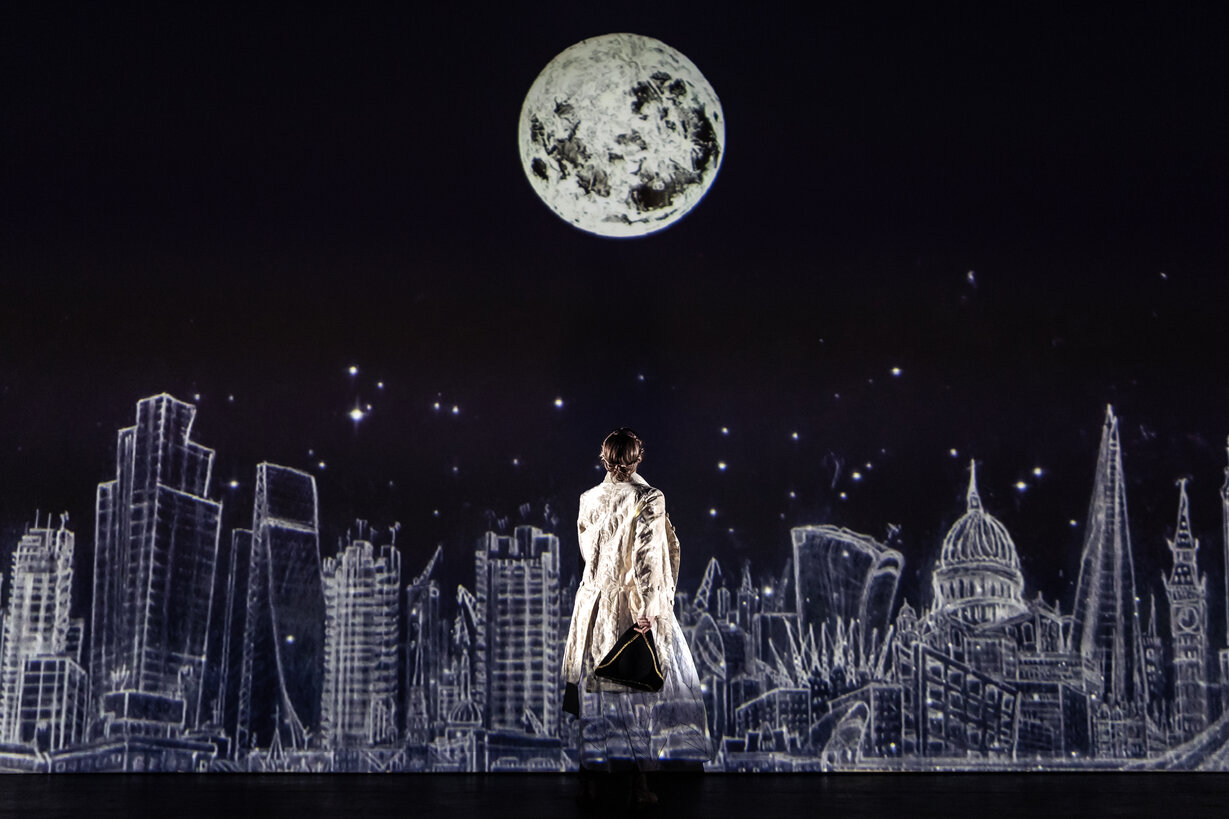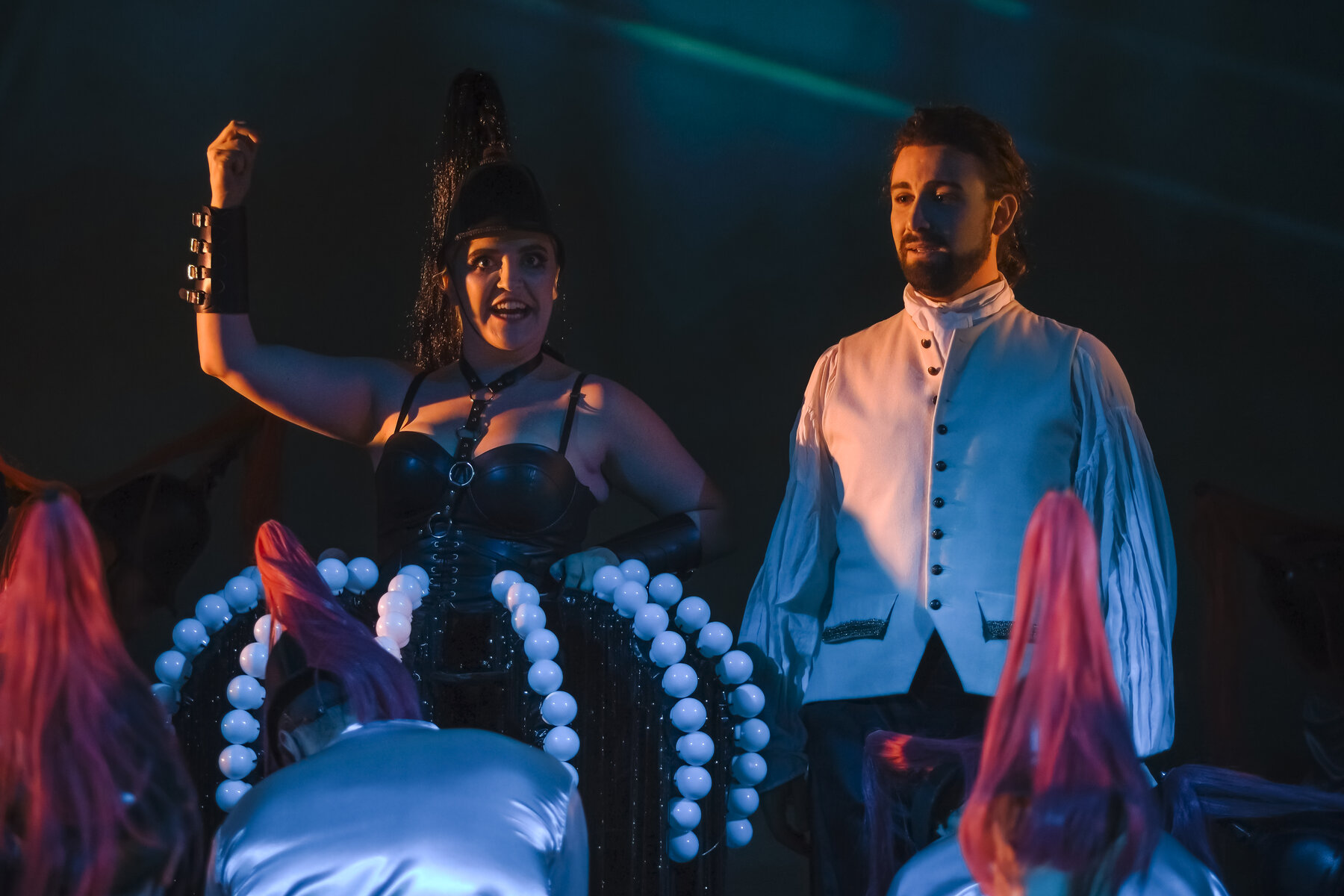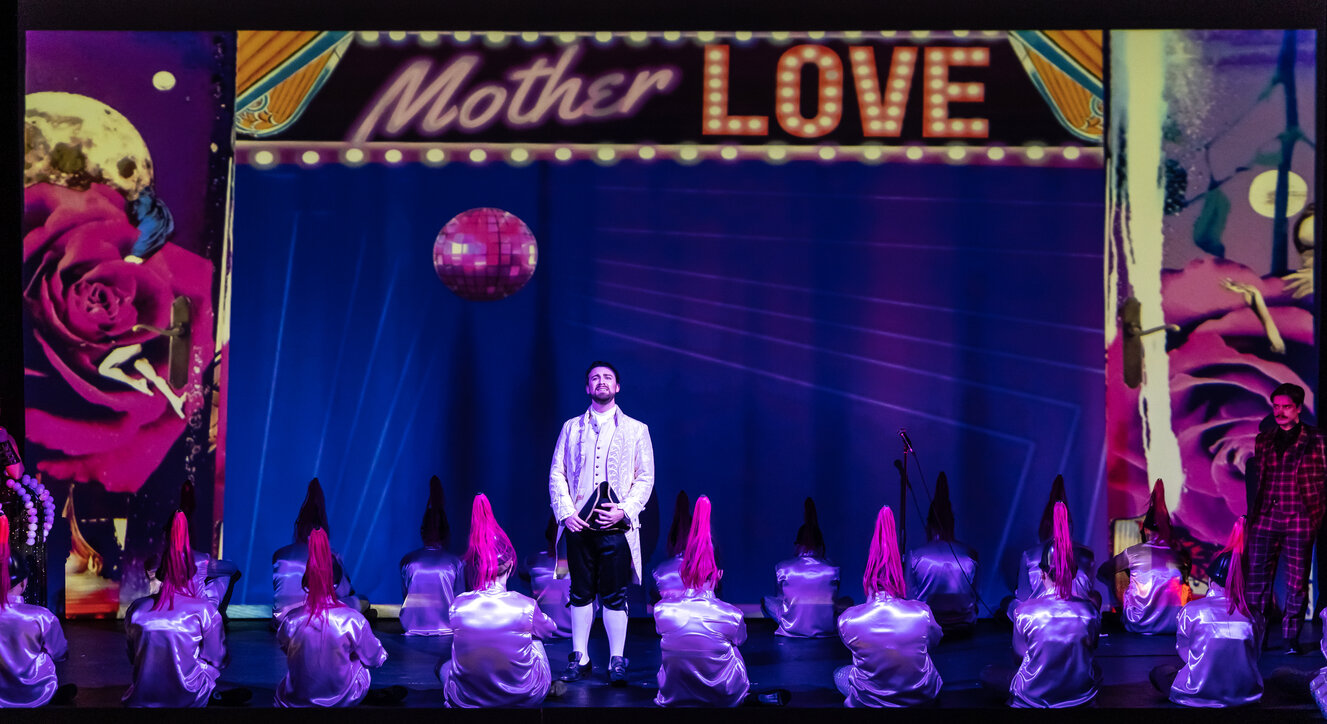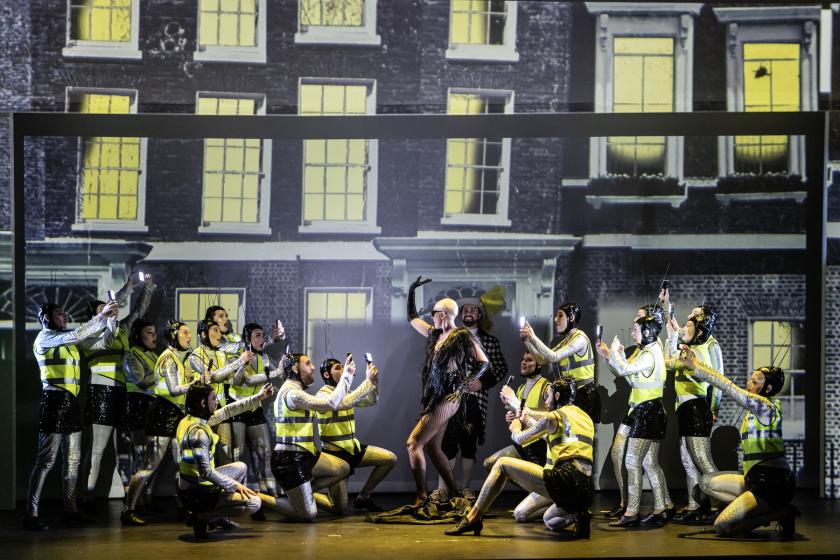Paris, Vienna, Rome – all have their operatic homages. But London (and I mean real London, not the slightly-grey Italy of Donizetti’s Tudor Queens) only rarely makes it into the opera house. Curiously, on the rare occasions it does, it’s the seedy side of things that’s very much at the fore in The Beggar’s Opera and, of course, the Hogarth-inspired The Rake’s Progress.
The city is the touchstone for any staging of the Stravinsky, telling the audience where on the dial between fairytale and morality play we’re going to fall. In Frederic Wake-Walker’s new production for the Royal Academy of Music telephone boxes are hot-pink, the Gherkin curves in charcoal-sketched soft-focus, stars twinkling all around, and the Georgian facades of Westminster streets buckle and bow under the manipulations of video collage. It’s storybook-playful, a little Peter Greenaway and a lot Monty Python. Two animators (Ergo Phizmiz and Lottie Bowater) are credited alongside designer Anna Jones, who between them do all the show’s heavy-lifting, from creating a rural idyll for the Truloves – video-real but with disconcerting Matrix-ish glitches, everything in the garden is not quite rosy – to Tom’s council estate flat, complete with passing buses, and his upgraded townhouse, the wallpaper a pecking, fluttering aviary (as we move further away from the truth of country life so perspectives become flatter and flatter). It’s fun and inventive and insistently manic, the constant motion and distortion a co-conspirator with the composer’s sea-sick rhythms.
Two animators (Ergo Phizmiz and Lottie Bowater) are credited alongside designer Anna Jones, who between them do all the show’s heavy-lifting, from creating a rural idyll for the Truloves – video-real but with disconcerting Matrix-ish glitches, everything in the garden is not quite rosy – to Tom’s council estate flat, complete with passing buses, and his upgraded townhouse, the wallpaper a pecking, fluttering aviary (as we move further away from the truth of country life so perspectives become flatter and flatter). It’s fun and inventive and insistently manic, the constant motion and distortion a co-conspirator with the composer’s sea-sick rhythms.
So much prominence for the digital also leaves the cast physically a little adrift. With almost no props (some cardboard boxes are a welcome addition in the auction scene) the young cast must fill the space with dance routines and gestures. Both need more time to bed in and feel fully owned; on opening night there were too many gaps while we watched characters wait to make their next planned move. There are plenty of laughs, most generated by Rebecca Hart’s Lady Gaga-esque Baba the Turk – a beardless, trouser-less Insta-girl, who can wear a bubble-wrap cape like nobody’s business. The mindless chatter of her “As I was saying, both brothers wore moustaches” works beautifully as a TikTok video. Hart gives us plenty of inflection and chesty colour, though for sheer vocal voluptuousness Georgia Mae Ellis’s Mother Goose (pictured above with Ryan Vaughan Davies as Tom Rakewell) is hard to beat. Samuel Kibble’s fluting Sellem further spices the comic mix.
There are plenty of laughs, most generated by Rebecca Hart’s Lady Gaga-esque Baba the Turk – a beardless, trouser-less Insta-girl, who can wear a bubble-wrap cape like nobody’s business. The mindless chatter of her “As I was saying, both brothers wore moustaches” works beautifully as a TikTok video. Hart gives us plenty of inflection and chesty colour, though for sheer vocal voluptuousness Georgia Mae Ellis’s Mother Goose (pictured above with Ryan Vaughan Davies as Tom Rakewell) is hard to beat. Samuel Kibble’s fluting Sellem further spices the comic mix.
The central trio are well balanced. Casandra Wright, pure of tone and intent, is a single-minded, moral crusader of an Anne. “I go to him” was all precise radiance and controlled sheen, softened just enough for a tender “Gently, little boat”. Her vocal weight plays strikingly off Ryan Vaughan Davies’ (pictured below) shallower tenor, a glamorous vocal façade that never invites us to cross the threshold. The stand-out is Jacob Phillips’ Nick Shadow – a musical as well as theatrical ringmaster, playing with timbre and diction to wring every drop of sinister charm and menace from Stravinsky’s charismatic villain. What luxury to have Trevor Pinnock in the pit, keeping the Royal Academy Sinfonia crisply baroque, an efficient and unsettling engine for the on-stage drama. Their precision makes the chorus feel a little soggy by comparison, not yet finding the energising crunch and bite in Auden and Kallman’s text.
What luxury to have Trevor Pinnock in the pit, keeping the Royal Academy Sinfonia crisply baroque, an efficient and unsettling engine for the on-stage drama. Their precision makes the chorus feel a little soggy by comparison, not yet finding the energising crunch and bite in Auden and Kallman’s text.
This Rake is a lot of fun. But the measure of any production is whether it can cash in all those glittering, colourful chips – the jokes, the ironies, the meta-theatre, the bearded ladies and chorus of prostitutes – for a big emotional pay-off. We don’t quite get one here. The madhouse feels like just another episode, another theatrical device rather than the collapse of theatre before the ineffectual patching-up of the Epilogue’s final moral.















Add comment